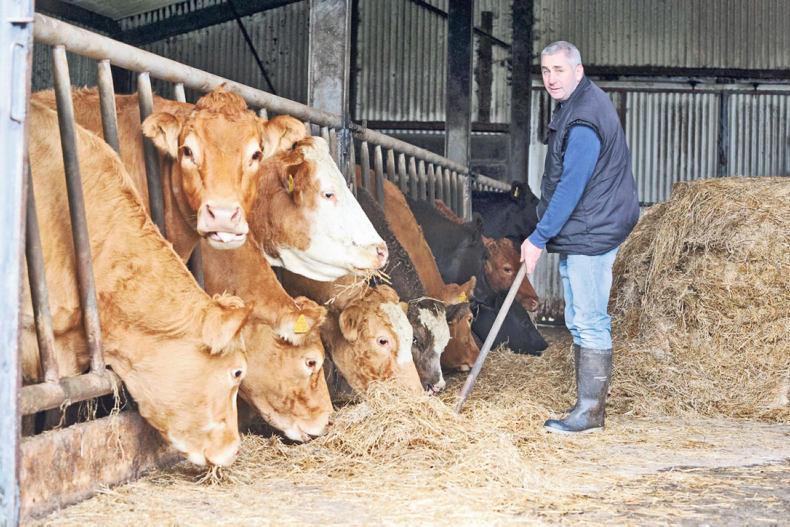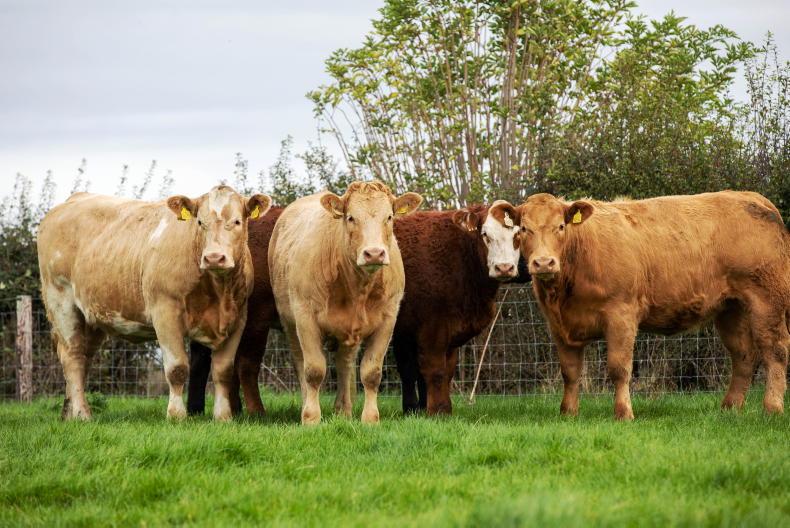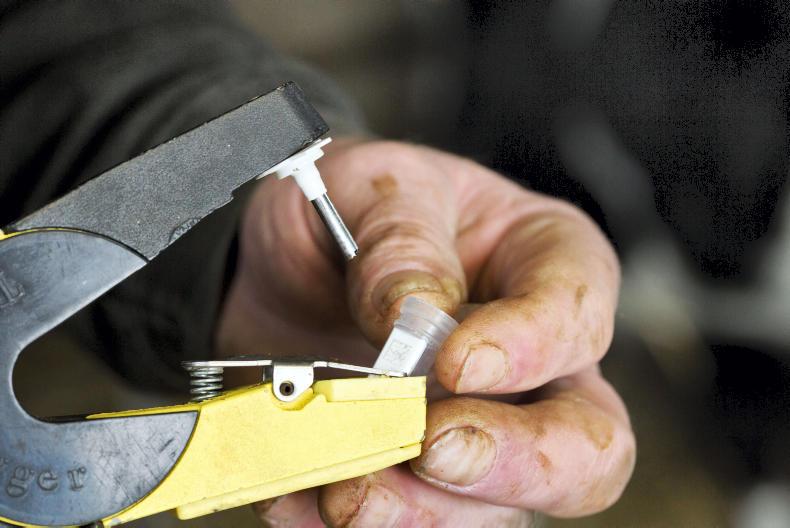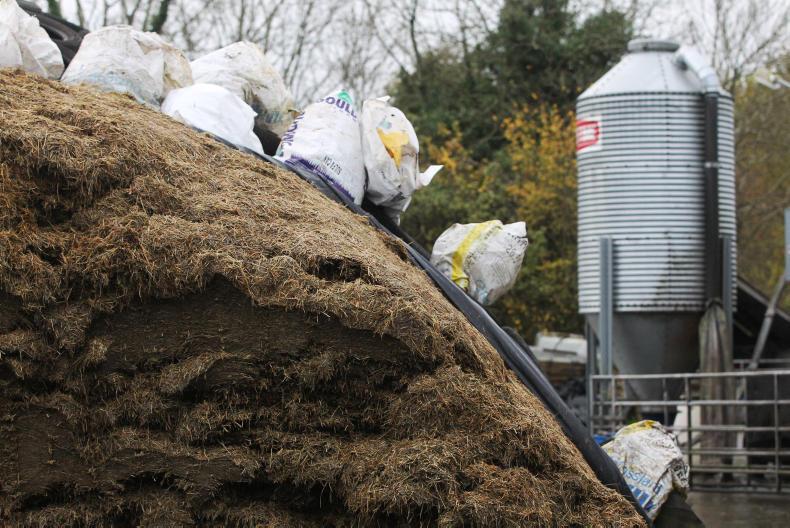Initial courses saw approximately 35 applicants invited to each course at a local training centre. Failing attendance at the first course, each applicant was then invited to a second training course. At this stage, 23,617 applicants have completed the mandatory four-hour course out of a total number of applicants of 24,790. Following consultation with the Department of Agriculture, Food and the Marine, Teagasc decided to plan 25 “mop-up” courses, which has led to over 1,150 applicants being invited for a third time. These are currently ongoing and will be completed by 31 October 2016.
This is the deadline by which each applicant must have completed the training course to avoid penalties. The courses have been well received by applicants as they have been upskilled on the €uro-Star Index and programme requirements and were given a detailed up-to-date BDGP profile of their own herd.
As a result of the knowledge picked up at these courses, applicants are better placed to plan for the various programme requirements that they need to comply with and also to produce more profitable, efficient breeding stock.
Attendance at third-invite training courses is running at approximately 45%, which should see 24,400 applicants trained by 31 October. Failure to complete a training course by this date will see a penalty of 20% of the total payment for years one and two incurred on an applicant. Failure to complete the training course within six months of the deadline will result in the applicant being removed from the programme and a clawback of all previous payments.
Mart boards
Twenty-seven marts around the country now have the new information boards that were grant-aided by the Department of Agriculture, Food and the Marine, displaying the Replacement Index and star rating for all 4- to 5-star heifers that are from BDGP and/or HerdPlus herds. This is a significant development for farmers as they now have information on an animal’s genetic merit when making a decision on purchasing. Many marts running special breeding heifer sales around the country are also providing catalogues in advance of the sales.
Carbon Navigator
All BDGP applicants are reminded that the carbon navigator, which is a compulsory requirement of the programme, must be completed by 31 October 2016. This must be completed with the assistance of a DAFM-approved agricultural adviser.
There will be no cost to the farmer for completing the Carbon Navigator, but the farmer must make contact with a DAFM-approved adviser to make an appointment to complete it. The responsibility is with the farmer to make the necessary arrangements to complete this by 31 October.
Failure to complete the carbon navigator by this date will result in a 50% penalty on the Carbon Navigator payment for years one and two. Failure to complete it within six months of the deadline will result in the applicant being removed from the programme and a clawback of all previous payments. For a list of DAFM-approved advisers, go to www.agriculture.gov.ie.
Tissue tags
Approximately 90% of 2016 BDGP tissue tags have been returned to date. This is excellent progress and BDGP applicants who have yet to return tags are encouraged to do so ASAP in order to receive genomic evaluations in the December evaluation run.
If you have any questions, please contact ICBF on 1850-625 626 or email query@icbf.com.
Q. I haven’t been invited to a training course yet. Who should I contact?
A. If you are still an active participant in the BDGP and haven’t been invited to a training course then you should contact the BDGP training administrators on 086-464 8418 or email bdgpadmin@frsnetwork.ie.
Q. I have yet to complete my Carbon Navigator. What do I do in order to get this completed?
A. If you have not yet completed a Carbon Navigator you will need to contact a DAFM-approved agricultural adviser ASAP to make an appointment. You will not have to pay the adviser for this as the DAFM will pay the adviser directly. For a list of approved advisers, go to
Farming System: Suckler to weanling/yearling.
4 and 5 Star Females: Cows: 13; Heifers: 15.
Stock Bull or AI: Stock Bull
Replacement Strategy: Breed my own.
Declan Higgins runs a 50-cow spring-calving suckler herd in Athenry, Co Galway. The best spring-born bulls are sold after weaning each October in Athenry Mart. Lighter bulls are castrated and sold as yearlings the following summer, with any heifers not selected for breeding sold as yearlings also.
Tell me about the Teagasc/ICBF Weighing initiative you participated in.
My Teagasc beef adviser Vivian Silke asked me to participate in the countrywide study that took place during 2015 and was repeated again this year. The ICBF sent out a technician twice to weigh all of the cows and calves. Both cows and calves were weighed in midsummer and calves were weighed at weaning time. In 2015, my calves averaged 1.17kg/day (range 0.78-1.41 kg/day). For 2016, the average was 1.13kg/day (range 0.64-1.42kg/day). This big range in daily liveweight gain shows how important it is to have a suckler cow with a good milk yield. This helps me to decide which cows I will cull at the end of each year. It also gave me the range in weight of my cows, which was 504-860kg, with the average weight being 729kg. This is important information for me to have and with the increasingly long winters and increased levels of rainfall, cow size has to be really examined.
What do you look for in a replacement female?
I like a good straight heifer that has excellent bone and good legs and feet. One of my Limousin bulls has a Replacement value of €140. I am using this bull to breed all of my replacements. The other Limousin bull is not as strong on replacement Index at €38 but is high on terminal value at €123. I am happy with my calving interval at 373 days but am currently calving my heifers at 36 months and will look at possibly switching to 24 months. I have an extra bunch of stock around the farm and need to cut down the labour associated with these cattle as well having more efficient cows calving at a younger age.
31 October: Deadline for completion of the Carbon Navigator and training as part of the BDGP requirements. Please make arrangements to complete the Carbon Navigator with an approved adviser ASAP. For a list of approved advisers, go to http://www.agriculture.gov.ie/beefschemes









SHARING OPTIONS